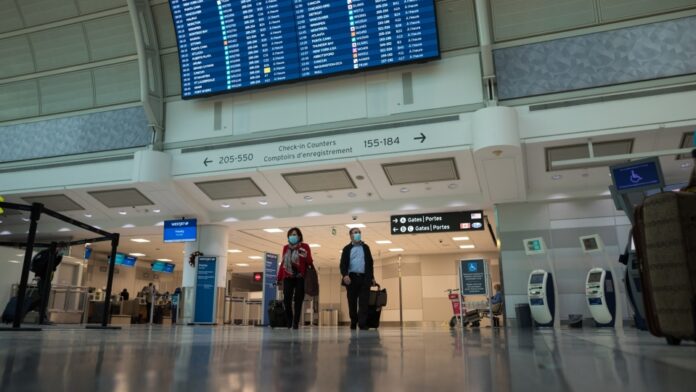
Canadians who are still considering travel this holiday season may want to think more carefully about getting travel insurance and what their coverage includes amid the spread of the COVID-19 Omicron variant.
Experts say travel insurance is important to ensure coverage for any medical mishaps abroad, but it has taken on extra meaning during the pandemic because health and travel conditions can change suddenly.
Omicron also has some in the travel industry divided over whether or not people should be planning international trips right now.
The federal government, for its part, advised against non-essential international travel on Wednesday, but that may not stop Canadians from leaving the country to visit friends and loved ones.
“If you must, it’s important that you travel with insurance and travel insurance specifically obviously [to cover you] both medically as well as for your trip,” Omar Kaywan, co-founder of Goose Insurance, told CTV News Channel on Thursday.
When shopping for travel insurance, Kaywan recommends reading the terms of your plan carefully before purchasing to ensure you get the appropriate coverage.
“Every single policy wording is different,” he said. “We recommend to all Canadians before purchasing any policies to review the policy wording.”
Particularly, Kaywan recommends three types of coverage related to COVID-19.
First, travellers should get insurance that covers any hospitalization costs incurred should they suffer from severe symptoms during their trip.
“Omicron, being a very contagious variant, the number one priority for a lot of Canadians is and should be COVID-19 insurance in terms of the medical component,” he said.
Next, if you run into any unexpected issues, including sudden changes to border restrictions, and you’ve already purchased a non-refundable plane ticket, some companies offer trip cancellation insurance to reimburse your airfare, Kaywan says.
Finally, travellers who enter another country and test positive for COVID-19 may want insurance to cover any quarantine expenditures.
“[If] I have to self-isolate and quarantine for 14 days, do I have the insurance to cover me for those accommodation expenses?” Kaywan said.
Currently, for the return trip, fully vaccinated Canadians and permanent residents coming home after short trips of 72 hours or less to the United States and abroad do not have to provide proof of a negative molecular test, such as a PCR test.
For longer trips, anyone coming into Canada from international locations is required to have a negative PCR test within 72 hours of their scheduled departure in order to board the aircraft and to avoid a potential 14-day quarantine when they arrive.
With files from CTVNews.ca’s Brooklyn Neustaeter, Alexandra Mae Jones and Sarah Turnbull
Source: CTV News
